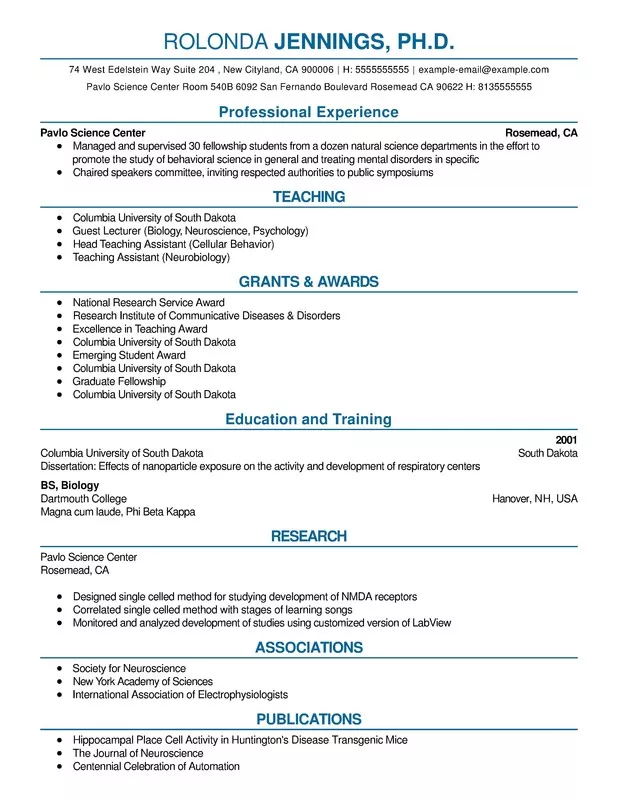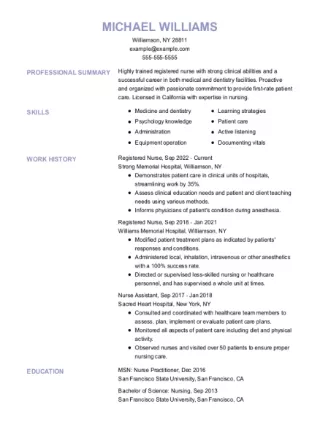How to Write a Strong Resume Skills Section (20+ Skills)
Featuring the right skills in your resume can help you stand out from the competition. Here’s how to list and explain your resume skills.
Our customers have been hired by*:*Foot Note

20+ Key Skills to Put On Your Resume - Examples and Tips
Acquired through experience or education, skills profoundly enhance your value to an employer because of the time and effort they take to develop. To help you create a list of top skills for your resume that help you get the job you want, we’ll be giving you these insights:
- Key skills for specific jobs and industries
- Examples from a variety of job opportunities
- An understanding of top skills you should present to a recruiter
- Skill suggestions from job experts
- Skills that differentiate you from the competition
Most hiring managers will only scan your resume for fewer than 10 seconds before they decide what they want to do with your application, so your skills list must hit the bull’s eye. Focus on assembling skills list that presents the right information with our tips below. And remember, if you use our Resume Builder, we’ll help you populate your resume with the right skills from scratch.
Build my resumeTop 20 skills for a resume
Communication skills:
Effective communication involves excellent verbal communication, written communication and nonverbal communication such as body language. Through communication, professionals can clearly convey their message, ideas, intentions and goals to others in a way that reaches the best results.
Related resume skills:
Jobs where this skill is useful:
Copywriter, Manager and Teacher
Problem-solving skills:
Knowing how to find solutions using the skills, experiences and resources you already have is an invaluable skill, especially in jobs that require clear thinking and the ability to solve problems.
Related resume skills:
Jobs where this skill is useful:
Computer Engineering, Programmer and Event Manager
Leadership skills:
Thoughtful decision making and the ability to adapt and take charge in difficult situations is always in demand, especially now with unpredictable changes happening in several industries, and new companies that need new leaders.
Related resume skills:
Jobs where this skill is useful:
Business Manager, Human Resources and Sales Manager
Time management skills:
Always being on time and reliable is one of the most valuable and attractive skills for any income level or profession. Time management is crucial for building trust and meaningful connections with coworkers and clients.
Related resume skills:
Jobs where this skill is useful:
English Teacher, Executive Assistant and Nursing
Flexibility:
When you’re flexible, you’re versatile, resilient and responsive to change. You can adapt to unexpected demands in the workplace — sudden surges in work, urgent problems or an unpredictable event.
Related resume skills:
Jobs where this skill is useful:
Hospitality, Logistics Manager and Web Developer
Attention to detail:
Having the ability to complete a task while demonstrating a thorough concern for all the areas involved, no matter how small. Attention to detail includes monitoring and reviewing work or information for accuracy, while organizing time and resources efficiently.
Related resume skills:
Jobs where this skill is useful:
Editor, Pharmacist and Video Editor
Specific software and computer knowledge:
Many companies rely on specific software or computer knowledge to get things done, so any experience or certifications you have in these areas can be crucial.
Related resume skills:
Jobs where this skill is useful:
Graphic Designer, Photographer and Java Developer
Project management skills:
Overseeing projects, working effectively with multiple teams and active listening are more integral than ever, especially as more people reenter the workforce.
Related resume skills:
Jobs where this skill is useful:
Construction Superintendent, Product Manager and Project Manager
Collaboration:
Working with others professionally and productively is part of every industry. Being a great communicator who knows how to deal with others and be a “team player” is an asset to any group.
Related resume skills:
Jobs where this skill is useful:
Dental Assistant, Office Administrator and Store Manager
Conflict resolution skills:
Displaying honesty, compassion and respect to customers, peers and management is how effective solutions form and workplace conflicts decrease.
Related resume skills:
Jobs where this skill is useful:
Customer Service, Kindergarten Teacher and Nurse Manager
Language skills:
Refer to your language skills as Basiс, Conversational, Fluent or Proficient.
- Basic: You can communicate on simple topics or know some phrases in this language.
- Conversational: You can communicate on everyday topics with minor grammar or vocabulary mistakes but you can’t write in this language.
- Fluent: Fluently communicating means you have the ability to express any idea without hesitation, with good vocabulary and grammar; people understand you easily. Both your spoken and written skills are good.
- Proficient: Being proficient differs from fluent in the way that you now understand the structure of the language and you can explain how this language works to other people. You also can use idiomatic language and understand local accents.
Related resume skills:
Jobs where this skill is useful:
Hotel Front Desk, Nanny and Retail Sales Associate
Customer service skills:
Knowing how to answer customers’ questions and care for their needs is vital across many industries.
Related resume skills:
Jobs where this skill is useful:
Librarian, Sales Associate and Veterinarian
Organizational skills:
Effective organizational thinking increases productivity and decreases confusion in the workplace, whether it’s keeping accurate records or being able to arrange information for easy reference.
Related resume skills:
Jobs where this skill is useful:
Clerical, Office Assistant and Scrum Master
Strong work ethic:
Keeping motivated and focused while learning new skills or during difficult times can help you overcome obstacles that other job seekers may be unable to. The enthusiasm and drive to excel is a crucial skill for maintaining your career momentum.
Related resume skills:
Jobs where this skill is useful:
Inventory Manager, Paralegal and Social Worker
Critical thinking skills:
Someone with critical thinking abilities can think clearly and rationally when the situation demands it, allowing them to be more effective at problem solving and decision making.
Related resume skills:
Jobs where this skill is useful:
Accounting, Data Analyst and Software Developer
Planning:
Thorough planning and strategy execution are essential for success and help deal with unexpected problems.
Related resume skills:
Jobs where this skill is useful:
CFO, Event Coordinator and Public Relations
Creative thinking:
Creative thinking leads to innovative creative solutions and includes skills such as the ability to approach challenges in unusual ways, and brainstorming.
Related resume skills:
Jobs where this skill is useful:
Art Director, Interior Designer and Writer
Patience:
This extremely useful trait means that you’ll be able to maintain a calm and rational demeanor when waiting for long periods of time or dealing with stressful situations. This skill makes working with others much easier.
Related resume skills:
Jobs where this skill is useful:
ER Nurse, Preschool Teacher and Sales Representative
Stress management skills:
The ability to maintain a calm demeanor when expectations change or things don’t go as planned is a skill in high demand. Defusing stressful situations helps people stay focused on what needs to be done, and keep sights set on end goals.
Related resume skills:
Jobs where this skill is useful:
Entrepreneur, Healthcare and Substitute Teacher
Mentorship:
The benefit of including this skill is showing that you can provide guidance, advice, feedback and support to your mentee. Being seen as sponsor, advocate and ally, depending on the specific goals and objectives of your mentee shows leadership and commitment to the organization.
Related resume skills:
Jobs where this skill is useful:
Hard skills vs. soft skills
It’s important to have a variety of skills on you resume, but what does that mean exactly? Well, most skills for resume can generally fall into two categories: hard skills and soft skills.
Hard skills are skills that you train in, so you can apply them to a specific field (e.g., software skills or accounting knowledge). Soft skills are general life and job skills you can apply to any field. For example, here are a few soft skills you can consider for your resume:
- Communication skills
- Adaptability
- Problem-solving skills
- Active listening
- Time management
- Project management
- Critical thinking
- Customer service skills
- Interpersonal skills
- Leadership skills
- People skills
These resume skills are all transferable skills that you can take from one job to another. They can help you assist team members, maintain relationships with coworkers and contribute to a productive, professional work environment.
Remember: only list skills if you’re fairly confident that you excel in these areas.

Hard Skills: Examples
- Language Skills
- Programming
- Sales
- UX Design
- Business Analysis

Soft Skills: Examples
- Leadership
- Communication
- Time Management
- Organization
- Team Work
Resume examples with hard and soft skills
Our resume examples are a great place to find inspiration and learn how others have organized their skills.
All of our examples are created by professionals with job-specific skills that can help you shape your resume into a professional, well-read and detailed summary of your career. You’ll find a resume example for a number of jobs and industries with important technical skills, soft skills and hard skills.
Build my resumeGet more skills for a resume in our Resume Builder
The ResumeHelp Resume Builder is a great tool if you’re trying to create any resume, regardless of your format. With our Builder, you can find the right resume template and expert suggestions for skills on your resume based on your job and industry. You can also save as many different versions of your resume as you need to proceed with your job search as quickly as possible.
FAQ: Professional resume skills
Have questions? We’re here to help.
What counts as important skills?
Important skills are the ones that you can use across several different industries. They are sometimes referred to as transferable skills and are great to highlight early in your resume, especially if you are applying for a job in a new field or have a break in your work history.
Here are a few transferable skills that you might want to add to your skills section if you have them:
- Skills for which you have received certifications
- Experience in programming languages like CSS and JavaScript
- Adobe software
- Microsoft Suite (including Outlook, Excel and Powerpoint; not just Word processing)
- Google Suite (Gmail, Sheets, etc.)
- Graphic design experience and knowledge
- Advanced SEM and SEO experience
- Foreign languages, as well as your level of proficiency
These are all important job skills but also if you have soft skills and can elaborate on them those would be an excellent addition to your resume as well. Being a respectful leader, a great communicator and excellent problem solver are assets that have a high value across almost every job field. Resume examples can come into play here as well so that you can have a template for the industries you’re interested in. Utilize the resume samples ResumeHelp has curated to check the resume skills sections on samples for specific jobs to see what kinds of skills are being listed.
Are accreditations considered relevant skills?
Accreditations should have their own section on your resume, along with certifications or honors. You can also discuss accreditations and qualifications in a‘Summary of Qualifications” section to explain and draw attention to these top skills.
Different resume formats may offer you the space to include accreditations or you may find that it will go in your general list of skills. This will depend on which resume format you choose.
How do I find out what technical skills are valued in my line of work?
The best way for you to figure out what technical skills are valued in a specific line of work is just to look at other resume examples and job postings for the same line of work. The more you look at these resume examples, the more you’ll be able to see what employers are looking for and what employees are putting front and center. Make sure you look at resumes in both your general industry and, if you can find them, the specific job you’re applying for.
Different places will value different skills and if you don’t have some of the skills on the list, prioritize showing off the skills you do have rather than stressing out about the skills you don’t. As you continue to polish your resume, you can start learning those important skills and add them to your resume as you become more confident in them.
What skills do I put on a resume?
Your resume should be a record of your most significant skills and accomplishments, so only highlight the skills you possess that are relevant to the position. You may want to include everything the employer highlighted in their job description but if you don’t actually have the qualifications they need, they’ll know.
You should also consider adding personal accomplishments like being a high school basketball champion. While finding familiarity with a recruiter is important, save space on your resume and stay on track by having a statement in your cover letter that reflects specific details of the company and why you’re interested.
Couldn't find the answer you're looking for?





